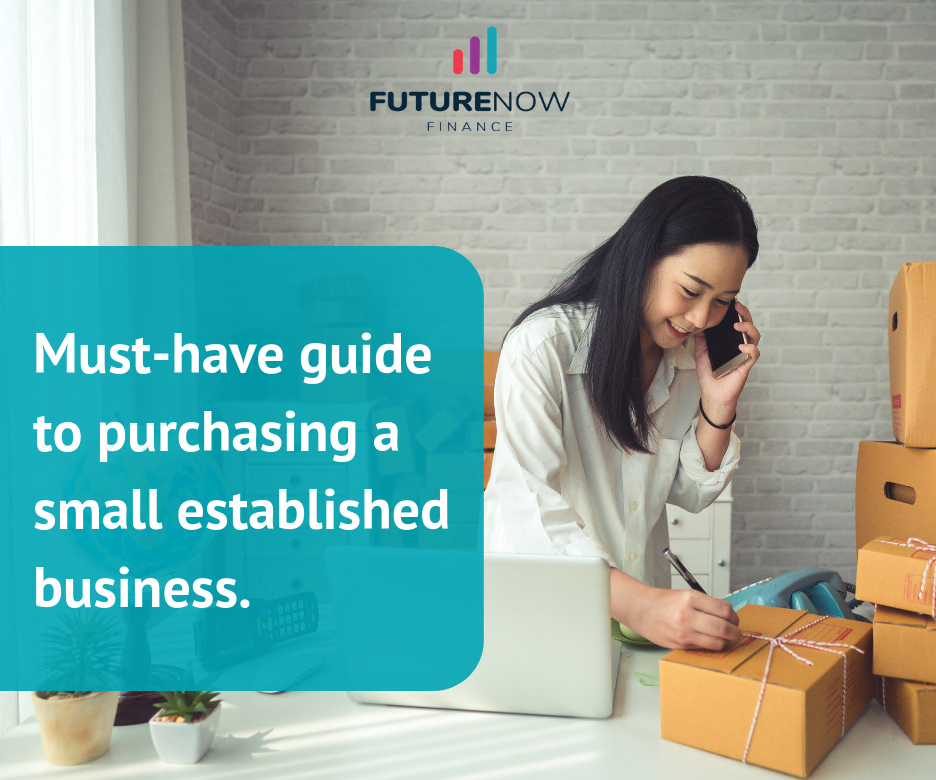Are you thinking of acquiring an existing business but unsure how to get started? Doing your own research is crucial as it helps you understand the process before going ahead.
Learn some of these helpful key steps to purchasing a small established
business. According to NAB, here’s what you need to know:
1. Understand the buying process by
doing your research – the main reason why most people buy a small business
rather than starting their own business is for the established infrastructure
and ongoing cash flow. Have you done your own research? What is your reason of
purchasing a small established business?
2. Establish your credibility – the owner would usually instruct a business adviser such as a business broker or lawyer to sell the business. However, it is good to approach the adviser first rather than the owner to register your interest. Your future plans for the business are extremely important to the seller and they usually take interest in this aspect.
3. It’s good to know what to ask when buying a business – here are three key questions:
– Does the owner have to sell? If yes, is the owner under time pressure?
– Does the owner wish to sell just the trading part of the business, or a company that holds both assets (such as a building) and the trading part?
– Is money the prime motivation for selling or is there some unrevealed reason, such as a competitor planning to open nearby?
4. Get a feel of the business – researching its market and competitors will help and benefit you in the long run. Take the time to talk to customers and other parties involved, including the suppliers to help you gain a better understanding of the business. It would be good to ask questions like “does the business pay on time?” “how does it compare with competitors? so you’ll get a feel for the business’s credit history. Also, it’s important you estimate the sales activity and pay a visit to the business at both announced and unannounced times to see how they are really doing.
5. Ask industry experts – the next thing to do is to tap into the knowledge of those in the know to help you assess the business. Important questions that you need to find out include:
– What’s the current and future demand for the business’s products or services?
– Are prices (and margins) rising or falling?
– How is the competition in that market changing? For example, which new competitors are entering or who else is looking to exit?
If you realise the business is not making a profit, find out why. It’s extremely important to find out these underlying issues before you show your full interest in buying the business and proceeding further.
6. Documents that need to be exchanged when buying a business – it’s important to exchange all the necessary paperwork in order to avoid legal and financial troubles along the way. Always have your paperwork reviewed by an attorney or an accountant involved in the due diligence to help you with the process. According to the Australian Government, you should gather your business information for the business as soon as you’re serious about buying a business, including the following:
Finances and assets of the existing business
– Financial statements such as cash flow statements, balance sheet and profit and loss statements
– Details of physical assets such as machinery, buildings, equipment and stock
– Details of other assets such as goodwill in the business and intellectual property (any designs, brands or trademarks that you have protected through copyright)
Legal information
– Legal documents such as leases and insurance policies
– Registration papers such as business name certificates, Australian Business Number (ABN) registration papers, licenses, permits, and any other papers that demonstrate you comply with government requirements
In general, you will need to talk to as many people as you can to learn more about the business’s history and prospects. Learn about what the employees have to say about the business, is the current business very much dependent on the current owner? If yes, having someone new in to replace may be an interesting change.
In part two of this article, we will be touching on how much do you really need to buy a business? We will be discussing ways to determine your budget when buying a business, who do you need as part of your professional team, and why they are important.
When thinking about buying a business, you should consider the option of finance. At FutureNow Finance, we can assist you with the whole process and structure your finances in line with your accountant’s tax strategy.
We look forward to working with you to structure a finance solution to purchase an established business and look after your ongoing finance requirements. Call us on 1300 013 730 or email us at hello@futurenowfinance.com.au

